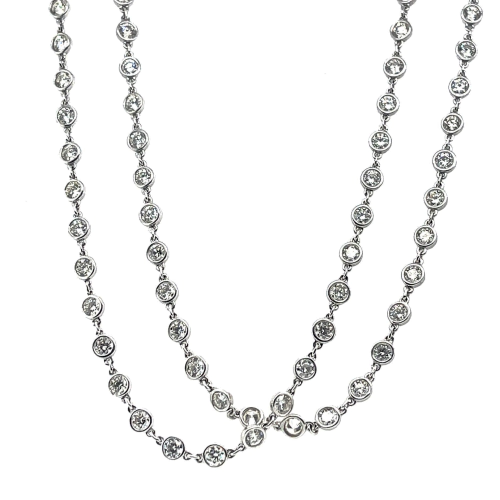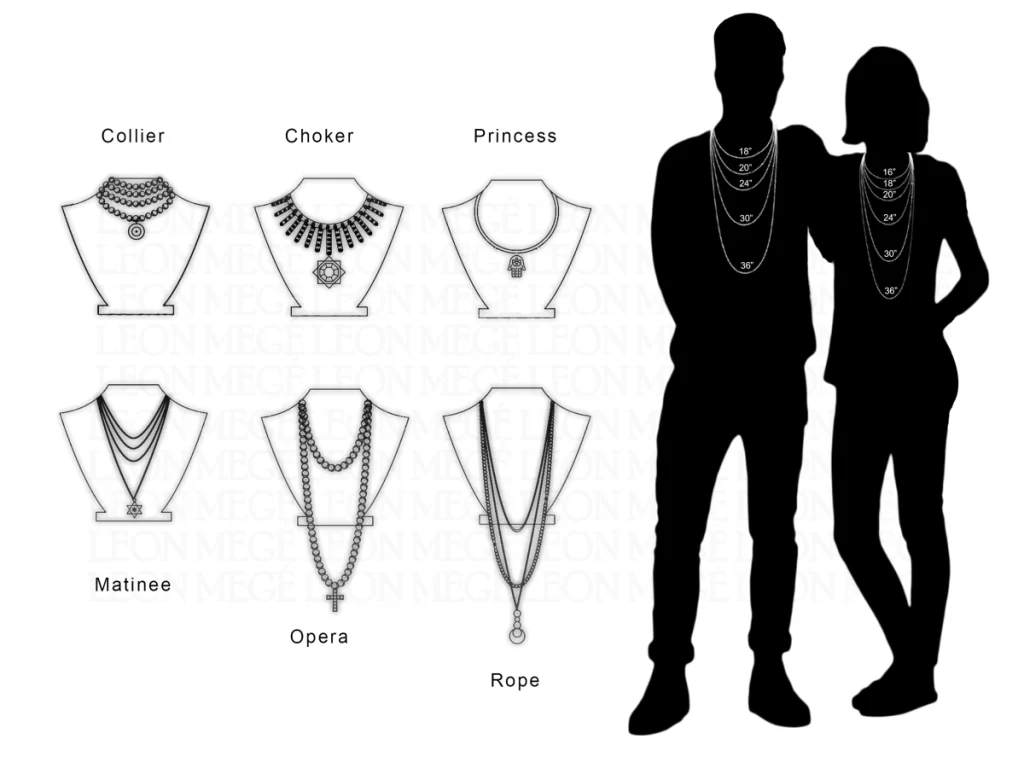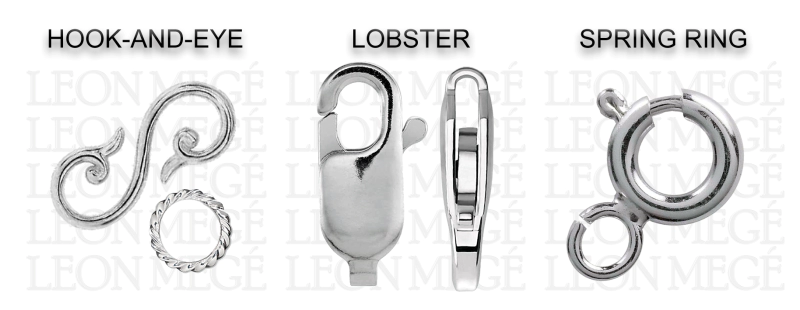Chain vs. Necklace
A necklace is set with gemstones, while chains are just metal. There is a grey area; for example, Elisa Peretti’s Diamonds By The Yard can be classified as a “chain” or a “necklace.”
There are many types of necklaces:
- Choker is a short necklace resting on the collarbone
- Sautoir – very long necklace
- Riviera is a single strand of diamonds of either equal size or graduating down in size towards the back
- Festoon is a garland of flowers, ribbons, or leafs hung in a curve as a decorative element
- Fringe has a series of pendant elements that dangle from links or cords
- Collier or Collar necklaces are typically 12 to 13 inches long, laying flat on the body
- A pendant is a necklace or a chain with a jewel or medallion dropped from the center
- Lavalier or Negligee is a small-link, fairly long necklace terminating in a single large pendant or tassel
- Lariat necklaces don’t have a clasp. They either tied or pulled through an opening on the other end
- Bib or Plastron
- Opera is typically around 26 to 36 inches long
- Matinée is approximately 20 to 22 inches long
- Princess is typically 18 inches long
- The rope is over 30 inches long
Necklace length
- The Choker is 14-16” and sits snug around the neck.
- Princess is 16-18” long, falling to the mid-chest. Princess length is the preferred length for a pendant.
- Matinee extends to 20-22” in length.
- Opera drapes dramatically at 24-28”.
- The Rope or Lariat extends over 30”, covering the abdomen. As a double wrap, one turn is a choker, and the other is the Opera.
Diamonds-by-the-Yard: a chain or a necklace?
A string of small round diamonds wrapped in a channel wire and inserted at repeated intervals into a thin chain was popularized by Tiffany’s Elsa Peretti, who claimed the invention.

Necklace and chain clasps and closures
- Hook-and-Eye or S-Hook is the easiest and least secure clasp made of a hook that slips into an opening to keep the chain in place.
- Lobster Clasp is the most desirable and secure carabiner-style lock with a spring-loaded gate that snaps back in place once the cap end is inserted. It is opened by simply pulling a small lever that lifts the lip allowing the cap end to be released.
- Spring Ring is a simple, lightweight clasp made from a hollow tube with a spring inside. Pulling the lever opens the slot for a cap end to be inserted. Once the lever is released, the clasp locks the cap end.
- The alligator clasp is used as a traditional lock or as a clip for accessories. It features a large loop suitable for multi-strand designs, large cords, or leather strings.
- Ball-and-Joint clasps use pressure to keep the clasps closed. Their easy-open and easy-close design are too flimsy for expensive necklaces, so they are used mainly for lightweight chains.
- The Fishhook clasp has a fishhook-shaped tongue threaded inside a box where it clicks in place. Ideal for lightweight necklaces and bracelets.


